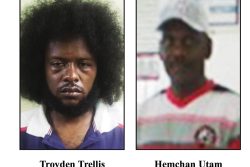A fatal shooting of a black teenager in a gated neighbourhood in Sanford, Florida has renewed doubts about the systemic flaws of American criminal justice, especially when it involves black victims. The February 26 shooting of Trayvon Martin by a neighbourhood watch captain named as George Zimmerman has underscored the country’s relative lack of progress on race relations during the last few years, despite the fact that the current President and Attorney General are both of African American descent, To date Zimmerman has been shielded from prosecution under the provisions of a law that allows Floridians to “stand their ground” if threatened, even to the extent of using lethal force.
A grand jury has been convened to investigate the case and the Department of Justice will ultimately decide what happens next, but the initial response of the Sanford police is, at best, deeply troubling. In the year prior to the shooting, the Miami Herald reports that Zimmerman had placed dozens of calls to the police “to report disturbances, break-ins, windows left open and other incidents. Nine of those times, he saw someone or something suspicious.” On the day of the Martin shooting Zimmerman decided to pursue the unarmed 17-year old despite being told not do so by a police dispatcher. (There is also an indication that he may have used racial slurs during this conversation.) Even so, the Sanford police not only failed to make an arrest after taking Zimmerman into custody but allowed him to keep his firearm afterwards.
The Herald also reports that recent complaints of racial prejudice in the Sanford Police Department include a 2010 incident in which police “waited seven weeks to arrest a lieutenant’s son who was caught on video sucker-punching a homeless black man,” and a 2005 case in which two security guards – one the son of a veteran Sanford police officer, the other a department volunteer – were acquitted for the killing of a black man they said was trying to run them over.
After the case provoked a national outcry, new evidence has emerged – including the testimony of Martin’s girlfriend, who was talking to him on a cellphone while he was being chased – that complicates Zimmerman’s claims of self-defence. When the US Department of Justice has finished sifting through the evidence there may well be some form of legal action. But by then the moment for any justice in the Martin case will long have passed.
In January of this year the killers of the black British teenager Stephen Lawrence finally received lengthy sentences for a murder that took place in April 1983. The reasons for the unconscionable delay in securing justice for Lawrence don’t bode well for the Martin case. Despite having strong evidence of the killers’ guilt, the British Crown’s charges were poorly framed and the initial prosecutions were bungled. A subsequent public inquiry concluded that London’s Metropolitan Police was “institutionally racist” and its patronizing attitude and lack of interest in racially motivated crimes – which the Lawrence murder clearly was – had seriously compromised the quality of its investigation and prosecution.
In addition to any institutional racism in Zimmerman’s favour, there is a longstanding record of indifference when black Americans are the victims of violent crime. Despite widespread and moving displays of solidarity in the American media, there has been no shortage of similar slights in this latest case. Fox News pundit Geraldo Rivera recently warned his viewers that Martin’s clothing – a hoodie – probably contributed to the incident as much as his race. (The argument, as many commentators have since pointed out, is little different to the classic rationale of sexual assault on the grounds that a woman was dressed too provocatively.) In some ways little has changed from 20 years ago when the questionable past of Rodney King was frequently used to rationalize the conduct of Los Angeles Police Department officers who were filmed beating him.
Of the hundreds of similar cases in America’s troubled past, few are more iconic than that of Emmett Till, a black teenager murdered in Mississippi in 1955 after reportedly flirting with a white woman. Both of Till’s killers were acquitted after a deeply flawed trial. (Shielded by the “double jeopardy” provisions in US Law they subsequently published a full account of the murder in a magazine.) In 2004 the Department of Justice reopened the case to determine whether others were involved in the murder but a grand jury subsequently dismissed claims that up to 14 people had taken part in Hill’s abduction and murder.
The US Attorney General Eric Holder is himself not immune to casuistry when it comes to extrajudicial killings, albeit in a somewhat different context. Commenting on the policy of the targeted killing of terrorist suspects – such as the US-born al Qaeda leader Anwar al-Awlaki – Holder recently observed that “due process and judicial process are not one and the same, particularly when it comes to national security. He added that: “The Constitution guarantees due process, not judicial process.” When senior members of a presidential administration are capable of uttering scholastic nonsense like this, is seems idle to hope for timely, transparent justice at a lower, more parochial level. Especially when the locals in question have been encouraged to stand their ground, at any price, when faced with a threat.








